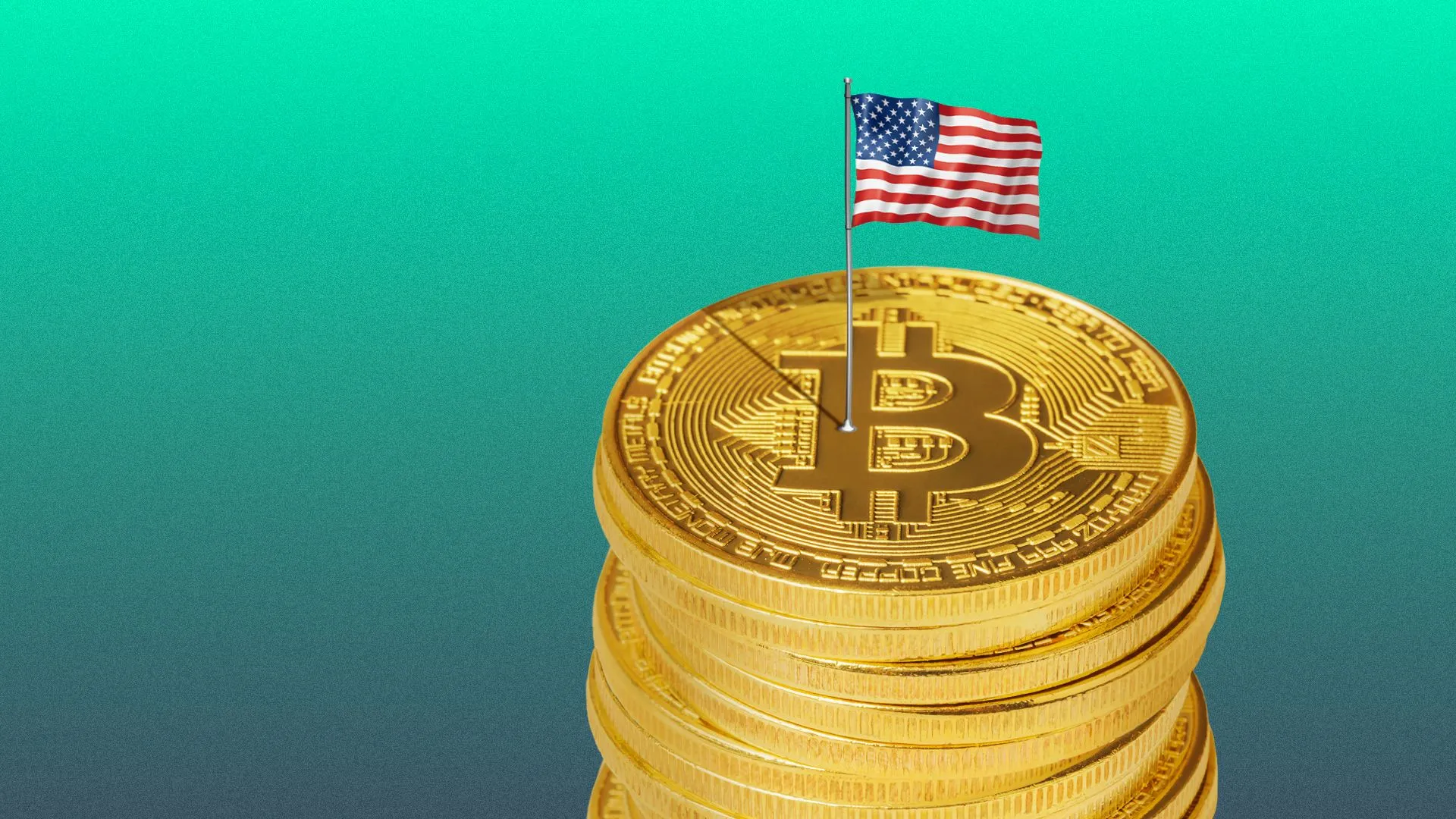
It wouldn’t take much for the United States government to become an investor in bitcoin like it is in gold — the question is whether it would do its citizenry any good.
Why it matters: The idea’s being touted by President-elect Donald Trump, and seems to be catching on.
Catch up quick: There’s two big proposals out there for committing the U.S. to the world’s biggest cryptocurrency, and both of them were introduced the same day in July at the same place, at the Bitcoin 2024 conference in Nashville.
- One proposal comes from Trump. The other — a more juiced up version — comes from Senator Cynthia Lummis (R.-Wyo).
- The idea, both say, is that holding bitcoin would give the U.S. some control of an increasingly important global asset. Lummis says it could even help the country reduce its debt.
Trump’s plan is for the government to simply keep the bitcoin that it already has.
- That pile — currently 198,000 bitcoins, valued around $19 billion —has been seized from crooks and is held by the U.S. Marshals Service. Normally, the state sells it, using the proceeds to compensate crime victims and fund law enforcement.
- Trump proposes we just quit selling it. That would give us a $19 billion stockpile right now, for free, with more to come! (depending on crime).
Senator Lummis’ proposal goes a bit further. She wants the U.S. Treasury to become a buyer of one million bitcoin, with a commitment not to sell any for 20 years unless sold to pay down federal debt.
- Bitcoin, she argues, would complement the U.S.’s existing national reserve assets — such as gold — bolstering the country’s financial resilience and strengthening the backing of the U.S. dollar.
Zoom in: The U.S. is already a gigantic holder of gold, with Treasury holding 8,134 tons of the commodity. (None of which serves any formal purpose any longer — it’s held over from our gold standard days)
- Funding behind Lummis’ proposal to buy a million bitcoin (valued around $100 billion at today’s price) relies heavily on something of an accounting trick involving that gold reserve.
- Basically, we’re undervaluing our gold wildly. We’ve had certificates at the Fed since 1973 that say our gold is worth $42/ounce, more than $2,500 below its actual market price.
- By raising that valuation to current levels, Lummis argues, the U.S. Treasury could cash a check at the Fed that should be enough to buy all the bitcoin.
The other side: Cato Institute economist George Selgin doesn’t buy it, and sees both proposals as little more than an indirect handout to existing bitcoin investors.
- He does not believe holding bitcoin would protect dollar dominance and he does not believe Lummis’s gold-powered financing model is actually a good deal for taxpayers.
“It looks like you are getting something for nothing but you really aren’t,” Selgin tells Axios of the Lummis plan. All the fresh cash printed up to pay for the gold would end up as deposits with the Fed, deposits it (we) would pay interest on.
- He also doesn’t buy the debt reduction angle. He doesn’t believe the government would ever actually sell the bitcoin it bought — mainly because we could do that with our gold now to pay down debt, and we haven’t.
What he’s saying: Gold investors and gold miners would go ballistic if we ever tried to sell, so we don’t, Selgin says, because it would hurt the value of their holdings (probably badly).
- So, it’s not hard to imagine bitcoin investors and miners would also fight just as hard to prevent federal sales of bitcoin in 20 years.
The broader idea seems to be catching on. Texas, Ohio and Pennsylvania have introduced legislation for state reserves. We’re told the idea is brewing in Oklahoma.
- The tiny nations of Bhutan and El Salvador already hold bitcoin. Larger countries, including Russia, Brazil, Japan and (most recently) Switzerland, have floated the idea in their legislatures, following Trump’s lead.
The bottom line: Bitcoin, like gold, is increasingly seen as a store of value, a point the Fed chair himself, Jerome Powell, recently made.
- Powell may still consider it unworthy of the Fed’s own balance sheet (though Treasury would likely be the steward of any bitcoin, as it is of the gold) — but Trump’s loud support, Washington’s increasing acceptance and bitcoin’s soaring price are likely to keep the idea of a strategic reserve in the conversation.
